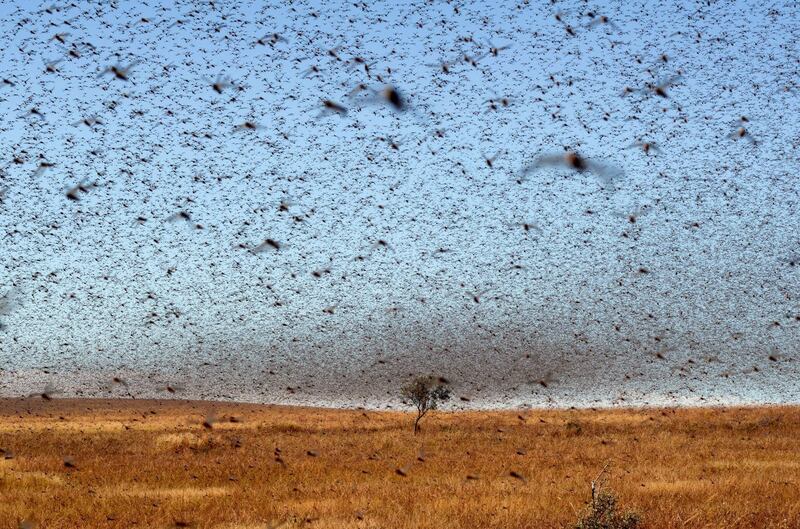The World Bank on Thursday approved a record $500 million (Dh1.8 billion) in grants and low-interest loans to help countries in Africa and the Middle East fight swarms of desert locusts that are eating their way across vast swaths of crops and rangelands.
Four of the hardest-hit countries - Djibouti, Ethiopia, Kenya and Uganda - will receive $160m immediately, Holger Kray, a senior World Bank official, told Reuters. He said Yemen, Somalia and other affected countries could tap funds as needed.
"The Horn of Africa finds itself at the epicentre of the worst locust outbreak we have seen in a generation, most probably in more than a generation," he said, noting the new coronavirus pandemic is exacerbating the crisis.
Locust swarms have infested 23 countries across East Africa, the Middle East and South Asia, the biggest outbreak in 70 years, the World Bank said. It threatens food supplies in East Africa where nearly 23 million people are facing food shortages.
The World Bank estimates the Horn of Africa region could suffer up to $8.5bn in damage to crop and livestock production by year-end without broad measures to reduce locust populations and prevent their spread. Even with the measures, losses could be as high as $2.5bn, it said.
Desert locusts can travel up to 150 kilometres (95 miles) a day, sometimes in swarms as large as 250 kilometres (155.34 miles) across, eating their own body weight in greenery.
In Kenya, the locusts are eating in one day the amount of food consumed by all Kenyans in two days, Mr Kray said.
The new World Bank programme will help farmers, herders and rural households by providing fertiliser and seeds for new crops, and cash transfers to pay for food for people and livestock.
It will also fund investments to strengthen surveillance and early warning systems to make the region more resilient over the medium- to longer-term, Mr Kray said.






